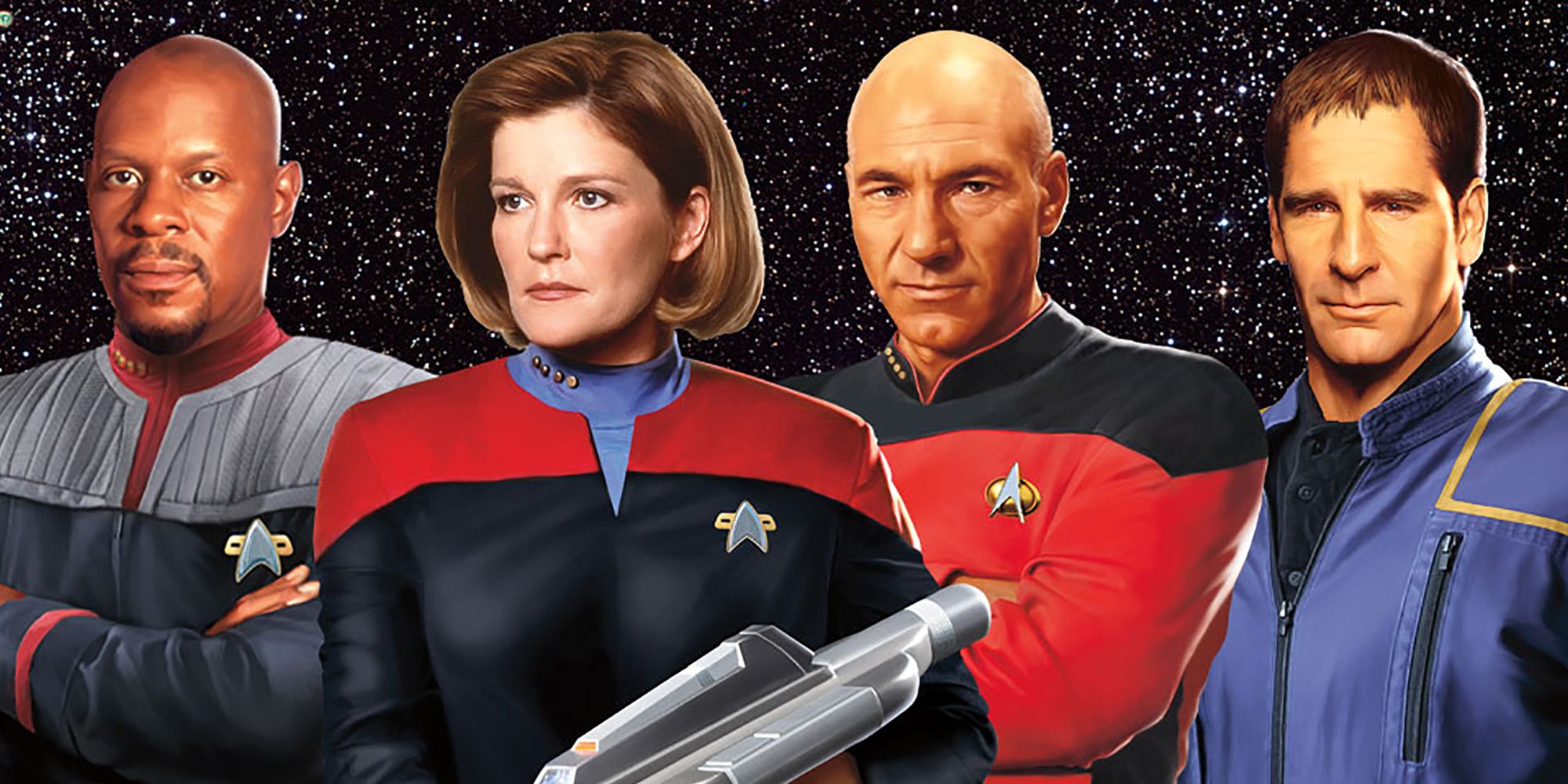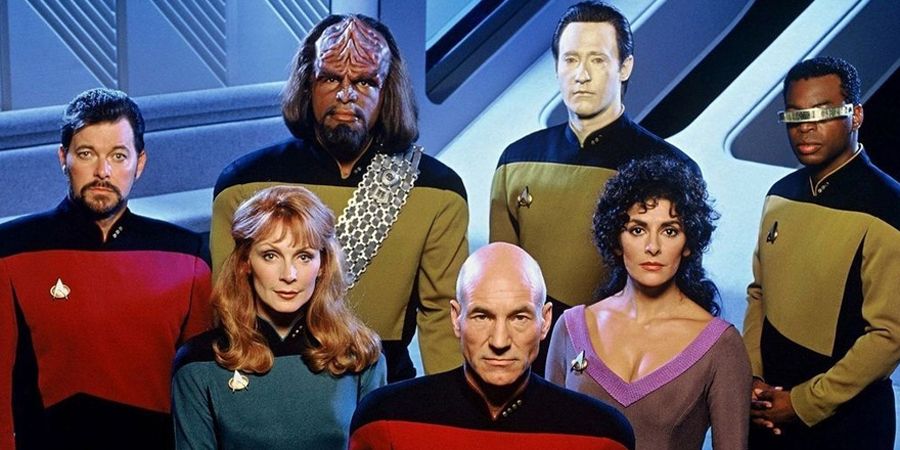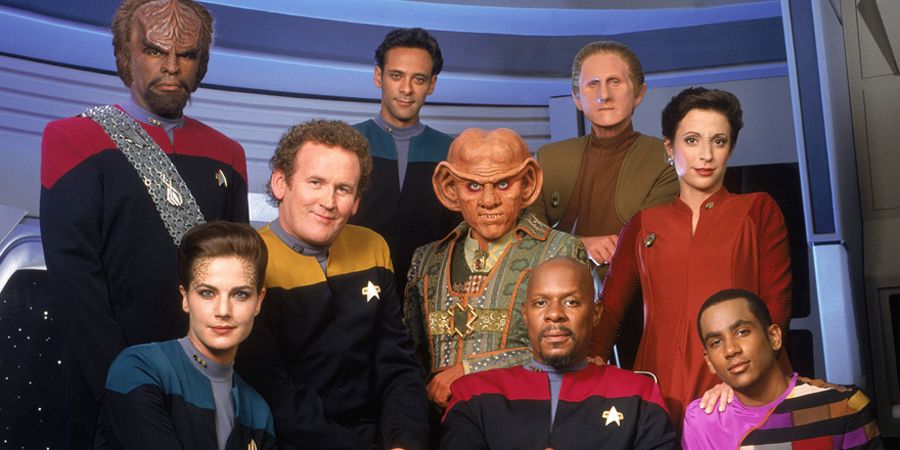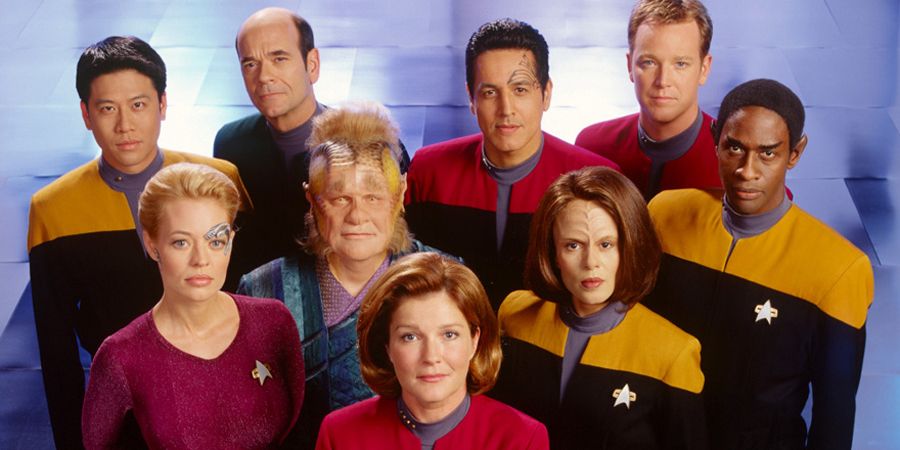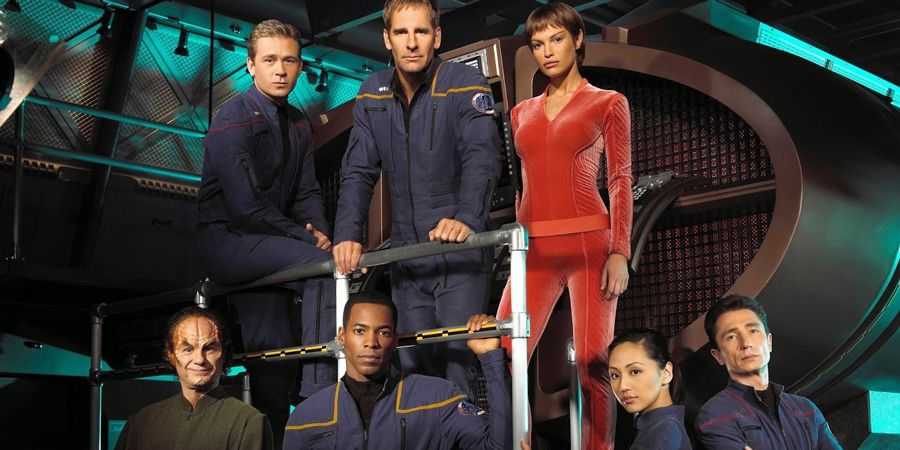It's been a long time since Star Trek has been on the small screen -- 12 years, in fact, since we bid farewell to Starfleet in the Star Trek: Enterprise episode "These Are the Voyages." Despite its current absence, the franchise that began in the '60s with the original crew of Kirk, Spock and McCoy has seen its fair share of television spinoffs over the years in The Next Generation, Deep Space Nine, Voyager and Enterprise. Each series offered something unique, expanding the Trek mythos and, yes, exploring strange new worlds. And, in September 2017, Star Trek: Discovery will hopefully do the same.
RELATED: New Star Trek: Discovery Plot Details Explain Presence of Two Ships
With Star Trek: Discovery's debut on the CBS All Access streaming platform bearing down on us, it's a good time to revisit those previous Trek spinoffs, and distill one important lesson from each series that the new Trek TV show could benefit from. Spotlighting one particular episode from each show, we analyze key ways The Next Generation, Deep Space Nine, Voyager and Enterprise each brought something different to the 50-year-old franchise and taught lessons integral to the future of Trek TV.
Star Trek: The Next Generation
Selected Episode: "Encounter at Farpoint"
Lesson: Don't rely too heavily on previous continuity.
With its debut in 1987, Star Trek: The Next Generation was the first time the franchise graced the small-screen since the original ceased its mission in 1969 (not counting the Animated Series). It set the stage for the future of all Trek spinoffs, establishing that a Trek TV show shouldn't rely too heavily on what came before it. Among the many reasons why The Next Generation succeeded was its ability to establish its cast of characters as a group distinct from the original Enterprise crew. They really held back with references to The Original Series its first few years, and apart from a small cameo by DeForest Kelley in the pilot, it took years before any of the core original cast members showed up on the series. By holding back too many on-the-nose references to what came before, TNG was a truly unique and standalone series in the context of Trek TV.
RELATED: Star Trek’s Nicholas Meyer Reveals He’s Working On Another Trek Project
Star Trek: Deep Space Nine
Selected Episode: "In the Pale Moonlight"
Lesson: Don't be afraid of interpersonal conflict among the crew.
The second Trek TV spinoff, Deep Space Nine, altered the usual perspective of a typical Trek TV show by zeroing in on a space station and its crew, rather than a starship. It was a trailblazer for its bold serialized storytelling and dark elements that would have been forbidden in the age of Gene Roddenberry. It also wasn't afraid to create some real conflict among its crew. You got the sense on Deep Space Nine that characters truly hated each other, and even the ones that did like each other -- in the episode "In the Pale Moonlight" in particular -- end up lying to one another for personal motives. Deep Space Nine proved that even in the future, humans (and aliens) can be petty, selfish and overall dicks to one another, despite civilization being more "advanced."
RELATED: Star Trek: Discovery Producer Talks Delays, LGBT Representation & More
Star Trek: Voyager
Selected Episode: "Relativity"
Lesson: Change up the visual aesthetic of a typical Trek TV show.
Apart from its strong cast led by Kate Mulgrew's Captain Janeway, there aren't a lot of nice things to be said about the third Trek TV spinoff, Voyager. When Star Trek Wonder Twins Ronald D. Moore and Brannon Braga split in the wake of The Next Generation ending and the first two TNG films, Moore went on to write for DS9, while Braga, to less success, would write for Voyager. Though the series had its flaws, it was significant for shaking up the visual aesthetic of a Trek TV series. Employing unconventional camera angles and visual techniques unique to other Trek shows of the time -- as evident in the wonderful time-travel episode "Relativity" -- Voyager showed that the standard interpretation of a Trek TV series could benefit from a visual shakeup.
RELATED: Star Trek: Discovery Beams Up New Images & Hint of a Vulcan Connection
Star Trek: Enterprise
Selected Episode: "Impulse"
Lesson: Explore other genres, whether it be horror, romance or crime-thriller.
The last of the original Trek TV spinoff, Star Trek: Enterprise, furthered the visual shakeup of Voyager, changing the costumes, interior design and makeup work that was typical of previous Trek outings. It was also significant for its ability to tackle other genres. In particular, to great success, the episode "Impulse" did the unthinkable by introducing, yes, Zombie Vulcans. The unusual take on the classic Trek alien species proved that there's a way to put a horrific spin on classic Trek TV tropes, while still managing to tell a story that works within the context of the franchise. Enterprise furthered TNG's ability to tell any kind of story: Romance, horror, thriller, and pretty much anything under the sun(s).
RELATED: Why Michael Dorn Turned Down a Star Trek: Discovery Role
The bottom line is, Star Trek: Discovery has a ton of potential to be a trailblazer for Trek TV. It's been confirmed that the series will tell a serialized story over the course of its first season -- taking cues from Deep Space Nine -- and amp up the diversity in the franchise, showcasing people of color and LGBTQ representation in lead roles. It sounds like Star Trek: Discovery could boldly go in uncharted territory for the series, and that's extremely optimistic for longtime fans, and something very important in today's television landscape. So here's to hope for a bright future of Trek on TV, and that Discovery may learn from the mistakes and bold takes from the past, while charging forward with a new vision for what it means to be a Star Trek TV show in the 21st century.
RELATED: Jonathan Frakes to Direct a Star Trek: Discovery Episode
What other lessons can be learned from The Next Generation, Deep Space Nine, Voyager and Enterprise? Sound off with your thoughts in the comments!

